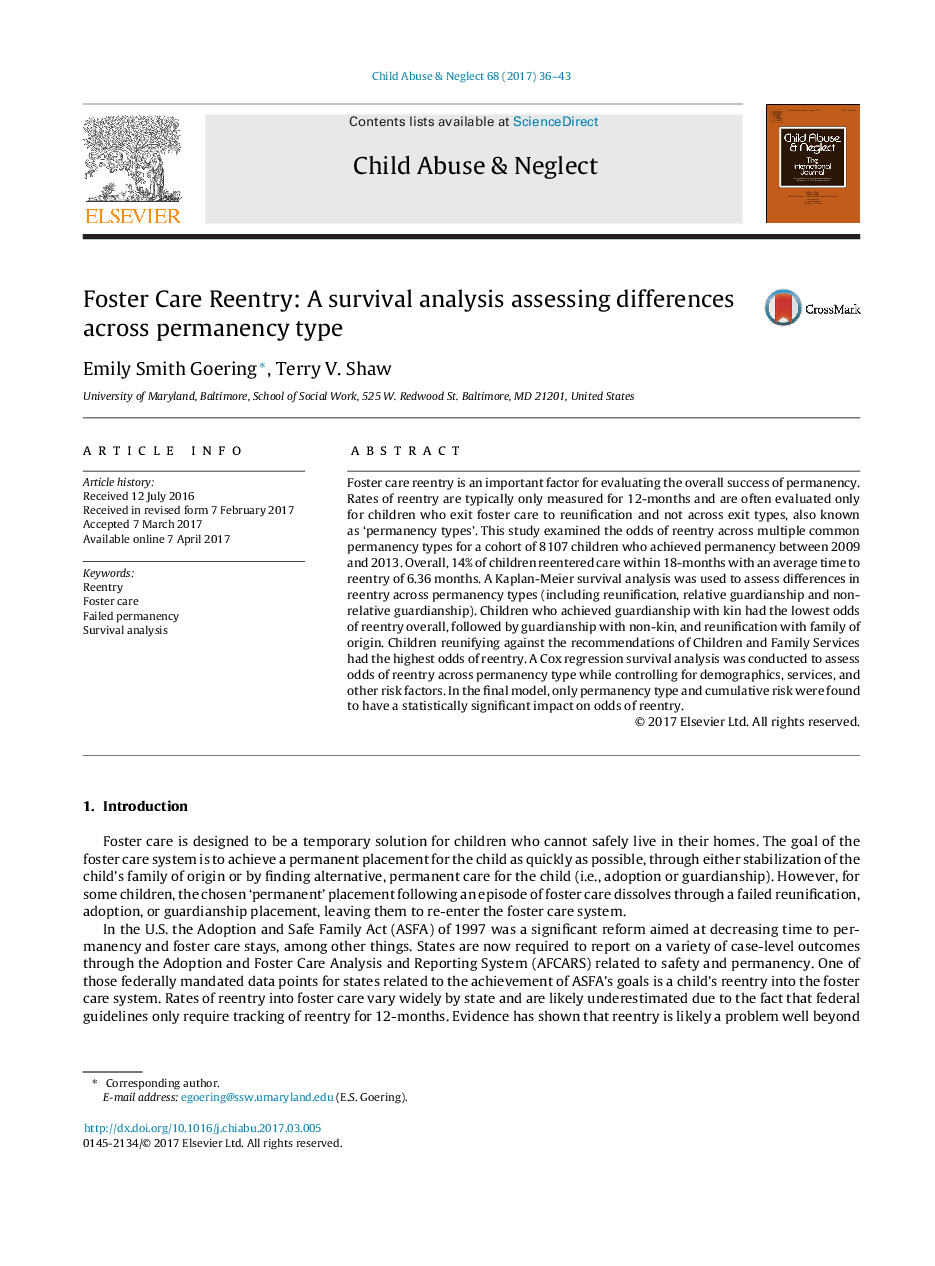| Article ID | Journal | Published Year | Pages | File Type |
|---|---|---|---|---|
| 4935944 | Child Abuse & Neglect | 2017 | 8 Pages |
Abstract
Foster care reentry is an important factor for evaluating the overall success of permanency. Rates of reentry are typically only measured for 12-months and are often evaluated only for children who exit foster care to reunification and not across exit types, also known as 'permanency types'. This study examined the odds of reentry across multiple common permanency types for a cohort of 8107 children who achieved permanency between 2009 and 2013. Overall, 14% of children reentered care within 18-months with an average time to reentry of 6.36 months. A Kaplan-Meier survival analysis was used to assess differences in reentry across permanency types (including reunification, relative guardianship and non-relative guardianship). Children who achieved guardianship with kin had the lowest odds of reentry overall, followed by guardianship with non-kin, and reunification with family of origin. Children reunifying against the recommendations of Children and Family Services had the highest odds of reentry. A Cox regression survival analysis was conducted to assess odds of reentry across permanency type while controlling for demographics, services, and other risk factors. In the final model, only permanency type and cumulative risk were found to have a statistically significant impact on odds of reentry.
Keywords
Related Topics
Health Sciences
Medicine and Dentistry
Perinatology, Pediatrics and Child Health
Authors
Emily Smith Goering, Terry V. Shaw,
